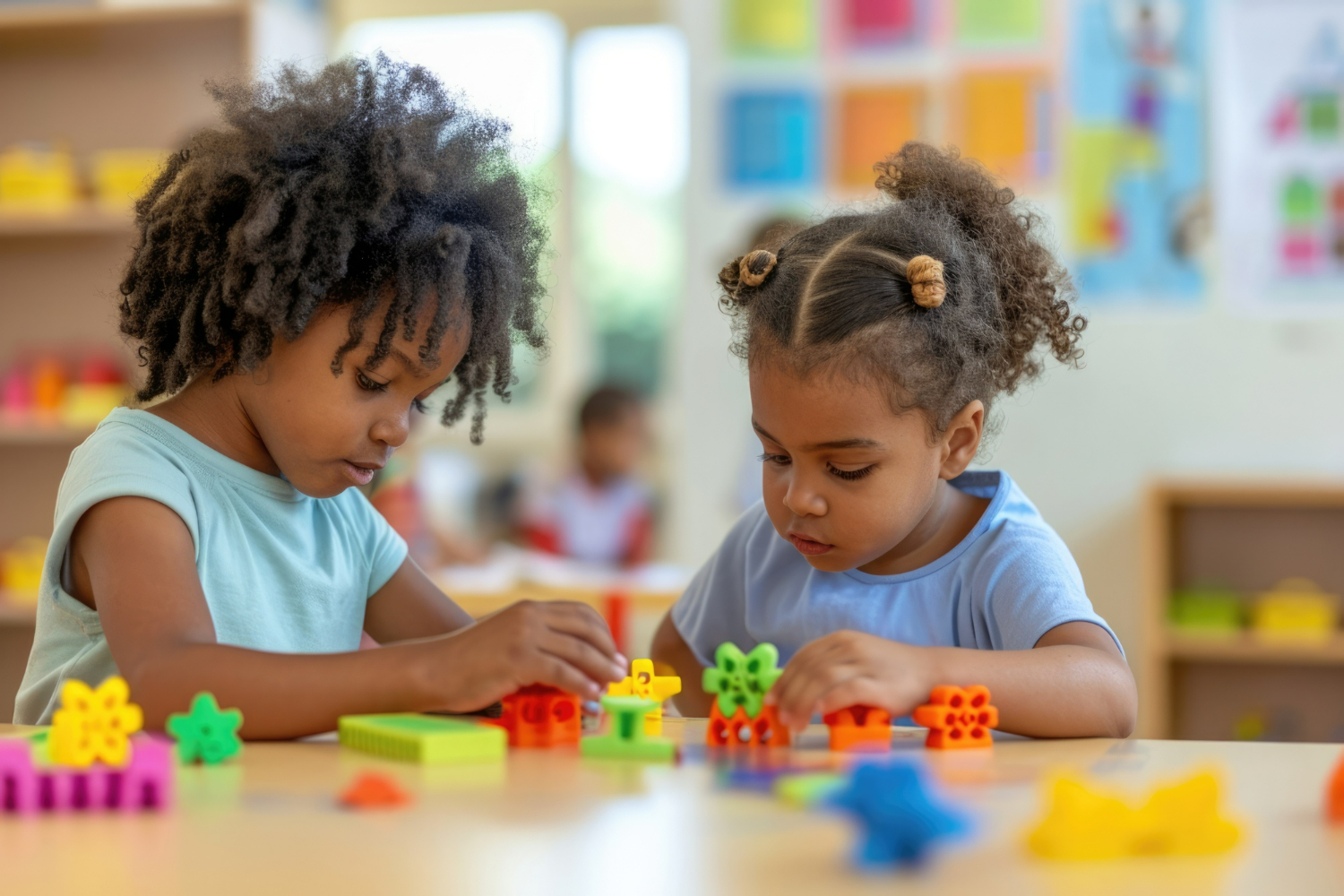Montessori education for children under six encourages learning through all five senses, going beyond traditional methods of listening, watching, or reading. In a Montessori classroom, children have the freedom to explore at their own pace, selecting from a variety of activities that align with their interests. Rather than participating in conventional group lessons, they engage in hands-on, self-directed experiences using specially designed materials, individually introduced by their teacher based on each child's readiness. This approach nurtures deep concentration, intrinsic motivation, self-discipline, and a lifelong love of learning.
As children progress beyond age six, their learning expands to independent research, field trips, expert interviews, and collaborative projects such as group presentations, art exhibits, musicals, and science experiments. Within this environment of guided freedom, there are no rigid schedules or standard textbooks—students are empowered to create, explore, and take ownership of their education. They actively seek lessons, share discoveries, and inspire one another, fostering a culture of cooperation rather than competition. As a result, Montessori students often meet or exceed traditional academic expectations while maintaining curiosity, creativity, and a genuine enjoyment of learning.
Multi-age classrooms provide the benefit of customizing the curriculum to meet each child’s unique needs. This structure allows children to learn at their own pace while fostering a strong sense of community with their peers. Additionally, the multi-age environment gives older children the opportunity to assume leadership roles, including those who might be more reserved, helping them develop confidence, responsibility, and social skills.
Montessori is designed to support every child in reaching their fullest potential at their own individual pace. In a classroom with diverse abilities, children learn from each other and contribute to the community. Additionally, the multi-age structure allows each child to progress at their own pace, without the pressure of feeling "ahead" or "behind" compared to their peers.
No, Montessori education is not based on any specific religious denomination. As a result, our classrooms are highly diverse, representing a wide range of cultures, backgrounds, and belief systems.
Montessori is not a franchise, and the term "Montessori" is not trademarked. As a result, anyone—regardless of training, experience, or affiliation—can open a school using the Montessori name. It is important for parents researching Montessori to be discerning and verify the authenticity of the program they choose to ensure it aligns with the true Montessori philosophy.
Dr. Maria Montessori was committed to ensuring that educators were properly trained, her methods were faithfully implemented, and classrooms were equipped with a complete set of authentic materials. Today, two primary organizations continue her legacy and are widely recognized as the gold standard for Montessori education. These are AMI (Association Montessori International), founded by Dr. Montessori herself, and AMS (American Montessori Society), which separated from AMI in 1960. Both organizations maintain a respectful, collaborative relationship. For those seeking a true Montessori experience, it’s crucial to choose a school affiliated with either AMI or AMS. The level of affiliation varies, reflecting how closely a school adheres to the ideal Montessori practices.
Montessori schools are often associated with early childhood education, but the Montessori method extends to programs for students all the way through high school.
Montessori children have the freedom to choose their activities within set boundaries, with freedom granted in accordance with their ability to handle responsibility. The classroom teacher and assistant work to ensure that children respect each other’s space and progress at their own pace across all subjects.
The unique layout of a Montessori classroom reflects the method’s departure from traditional education. Instead of placing the teacher at the center of attention, with children relying on her for information and direction, the classroom embodies a child-centered approach. Children work at tables or on floor mats, allowing them to spread out their materials, while the teacher moves around the room, offering lessons or addressing needs as they come up.
Yes. Montessori classrooms focus on fostering a deep understanding of the concepts behind academic skills, rather than simply memorizing abstract techniques. The success of our students is evident in the achievements of our alumni, who excel alongside traditionally educated students in a range of high schools and universities.
Montessori classrooms focus on competition with oneself, emphasizing self-monitoring, self-correction, and a range of executive skills aimed at continuous improvement. Students become confident in their strengths while learning how to address their weaknesses. In older classes, students often engage in competitive activities with clear outcomes, such as auditions for limited opera roles or the annual spelling bee. These events encourage students to give their best performances while supporting their peers to do the same. It is a healthy form of competition where all participants can take pride in doing their best within an environment of clear, consistent rules.


Copyright © 2024 Town Square Academy. All Rights Reserved. Privacy Policy.